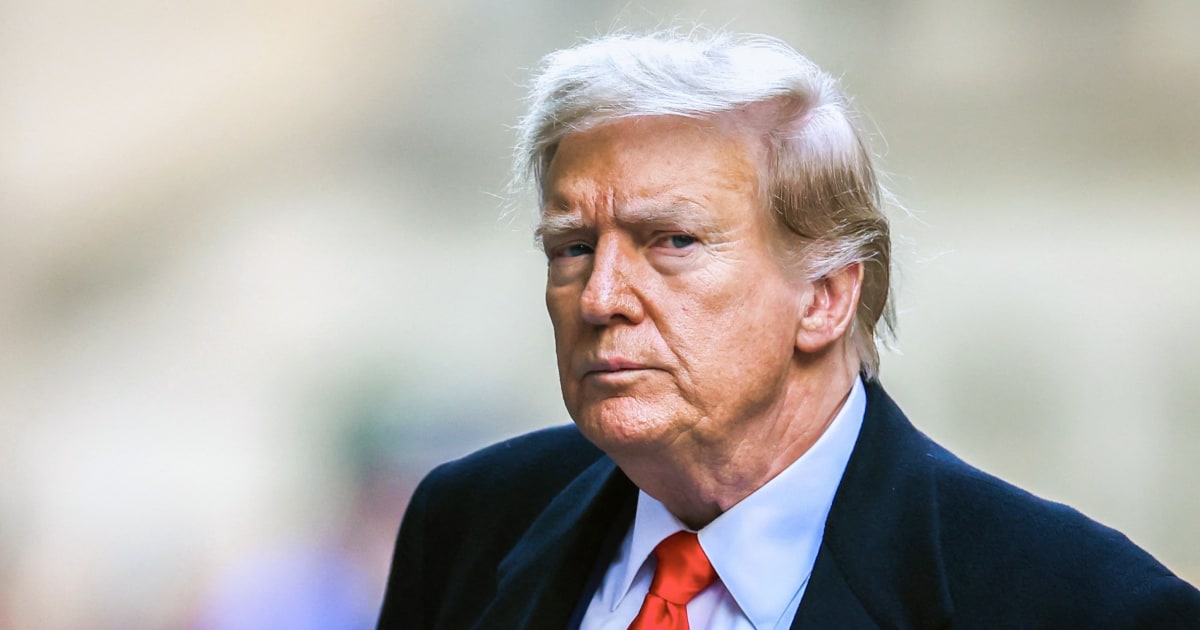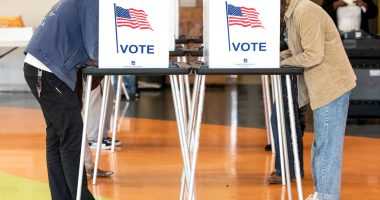
The judge overseeing former President Donald Trump‘s hush money case in New York has approved a questionnaire for jury selection and instructions for prospective jurors in the trial that’s set to begin next week.
In a letter Monday, Judge Juan Merchan provided attorneys in the case with a jury questionnaire that consists of 42 numbered questions on a range of topics. The form does not ask about party affiliation, political contributions or voting history.
Merchan pushed back on a contention by Trump’s attorneys that a potential juror’s political affiliation and whether they like the former president is important to jury selection, saying, “contrary to defense counsel’s arguments, the purpose of jury selection is not to determine whether a prospective juror likes or does not like one of the parties.”
“Such questions are irrelevant because they do not go to the issue of the prospective juror’s qualifications,” the judge wrote. “The ultimate issue is whether the prospective juror can ensure us that they will set aside any personal feelings or biases and render a decision that is based on the evidence and the law.”
The form asks prospective jurors numerous questions, including:
- About their neighborhood, profession, employers (present and past), marital status, hobbies and interests, and relationships with others who have been victims of crimes or alternatively, have worked in places like the FBI, prosecutors’ offices, or in criminal law
- Whether due to “political, moral, intellectual, or religious beliefs or opinions” they would be unable to follow the judge’s instructions or render a verdict
- Whether they’ve read any of either Mark Pomerantz’s or Michael Cohen’s books about the alleged crimes and/or the investigation that led to the hush money case and whether what they have read or heard via audiobook “affects your ability to be a fair or impartial juror in this case”
- About their personal, familial, or close friend’s ties to Trump or the Trump Organization before addressing whether the person has engaged in certain activities that would reflect political support for Trump or “any anti-Trump group or organization” and/or extremist movements
- Whether they practice “a religion that would prevent you from sitting as a juror on any particular weekday or weeknight.”
- What they read, watch and listen to in terms of media consumption, followed by a list of options to check including The New York Times, New York Post and Wall Street Journal, as well as CNN, Fox News, MSNBC and Newsmax, and social media platforms like Facebook, X, Tik Tok and Truth Social
Merchan suggested in his letter that the question of political affiliation “may easily be gleaned from the responses to other questions,” but warned the attorneys in the case “not to seek to expand the degree of intrusion beyond what is relevant and has already been approved.”
Attorneys for Trump and the Manhattan District Attorney’s Office did not immediately respond to requests for comment on Monday evening.
The dispute over political preferences has also been raised in the former president’s classified documents case in Florida, with Trump’s lawyers and prosecutors battling over disclosures about political affiliation in a questionnaire for prospective jurors there.
Trump pleaded not guilty in Manhattan last year after he was indicted on 34 felony counts of falsifying business records in connection with hush money paid to adult film star Stormy Daniels during the 2016 presidential campaign.
In addition to detailing the jury questions, Merchan on Monday also said that prospective jurors will be informed before they enter the courtroom that they will be identified by the number printed on their jury summons “as a necessary measure to ensure anonymity.”
Merchan ruled last moth that he will use an anonymous jury, effectively shielding their names from the press and the public, citing “a likelihood of bribery, jury tampering, or of physical injury or harassment of juror(s).”
In Monday’s letter, Merchan said that the court won’t conduct individual interviews with prospective jurors who say they’re unable to serve, saying that the step is “unnecessary, time consuming, and of no benefit” to the case.
The jury questionnaire and instructions come the same day a state appeals court judge rejected Trump’s effort to delay the trial that’s set to begin April 15 with jury selection.
Source: | This article originally belongs to Nbcnews.com










